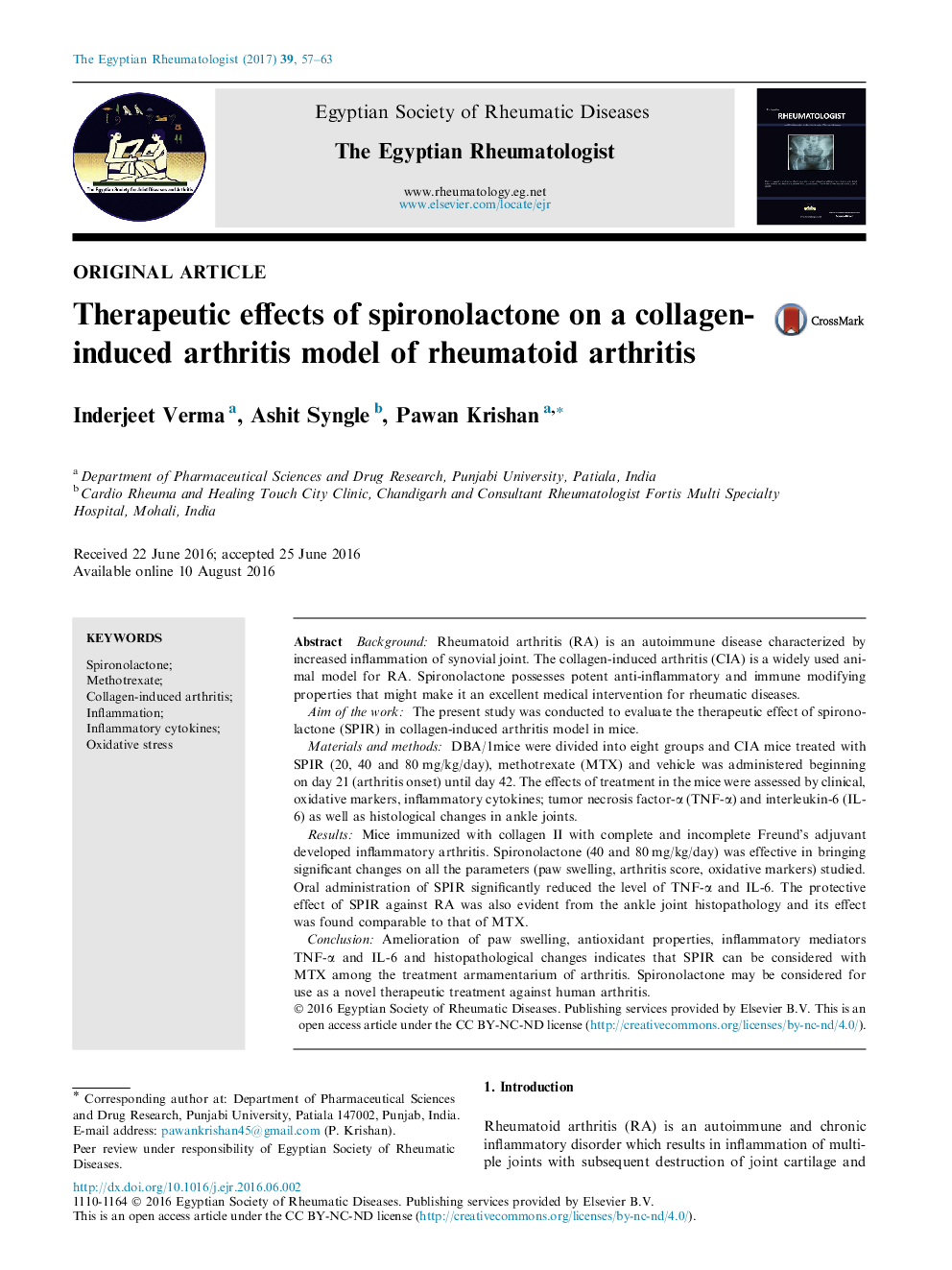| Article ID | Journal | Published Year | Pages | File Type |
|---|---|---|---|---|
| 5666117 | The Egyptian Rheumatologist | 2017 | 7 Pages |
BackgroundRheumatoid arthritis (RA) is an autoimmune disease characterized by increased inflammation of synovial joint. The collagen-induced arthritis (CIA) is a widely used animal model for RA. Spironolactone possesses potent anti-inflammatory and immune modifying properties that might make it an excellent medical intervention for rheumatic diseases.Aim of the workThe present study was conducted to evaluate the therapeutic effect of spironolactone (SPIR) in collagen-induced arthritis model in mice.Materials and methodsDBA/1mice were divided into eight groups and CIA mice treated with SPIR (20, 40 and 80 mg/kg/day), methotrexate (MTX) and vehicle was administered beginning on day 21 (arthritis onset) until day 42. The effects of treatment in the mice were assessed by clinical, oxidative markers, inflammatory cytokines; tumor necrosis factor-α (TNF-α) and interleukin-6 (IL-6) as well as histological changes in ankle joints.ResultsMice immunized with collagen II with complete and incomplete Freund's adjuvant developed inflammatory arthritis. Spironolactone (40 and 80 mg/kg/day) was effective in bringing significant changes on all the parameters (paw swelling, arthritis score, oxidative markers) studied. Oral administration of SPIR significantly reduced the level of TNF-α and IL-6. The protective effect of SPIR against RA was also evident from the ankle joint histopathology and its effect was found comparable to that of MTX.ConclusionAmelioration of paw swelling, antioxidant properties, inflammatory mediators TNF-α and IL-6 and histopathological changes indicates that SPIR can be considered with MTX among the treatment armamentarium of arthritis. Spironolactone may be considered for use as a novel therapeutic treatment against human arthritis.
